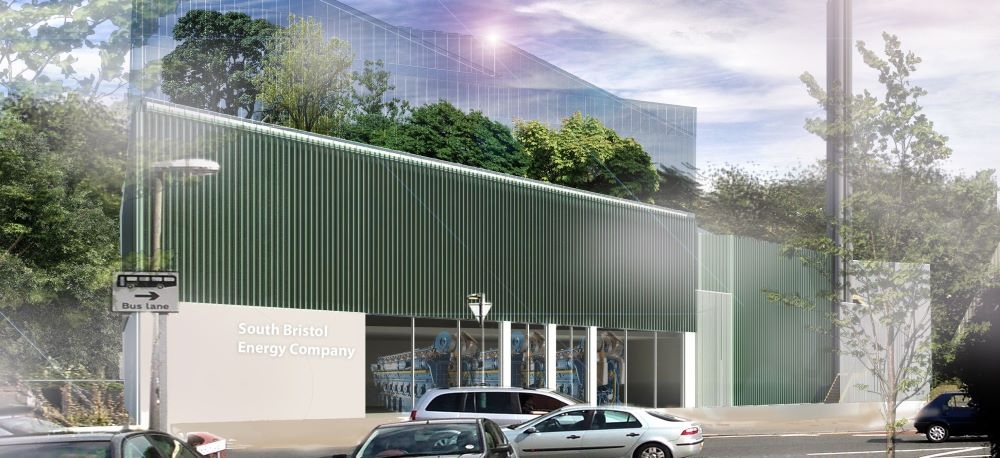Low Carbon invests in Energy Networks Europe to champion smarter heating for the UK
Renewable energy investment company, Low Carbon acquires majority stake in combined heat and power (CHP) company, Energy Networks Europe
London, United Kingdom 19 July 2016 – Renewable energy investment company, Low Carbon today announces its initial investment in acquiring a majority stake in Energy Networks (Europe) Limited (ENE).
ENE is a joint venture between Low Carbon and a development consortium consisting of Urbis Living, which has been involved in the strategic redevelopment of large parts of South Bristol and First Generation (UK) Limited, a company that designs, builds and operates Combined Heat and Power energy networks to service communities and industrial and commercial processes.
Combined heat and power (CHP) is a process that cost effectively captures the heat produced in electricity generation and distributes this heat to local homes and businesses. Not only can CHP help to reduce energy usage, it can also reduce carbon emissions by up to 30% when compared to conventional generation. ENE has been established for the purpose of developing and operating heat and power networks.
Low Carbon is a privately-owned UK investment company, investing in utility-scale projects including solar PV, wind, concentrated solar power and battery storage. The company is making significant strides to diversify its portfolio, realising the potential and opportunity of CHP and district heating.
Steve Mack, Head of Investments, Low Carbon commented, “It’s a truly exciting time to be investing in the heating and CHP market. Heating is the largest part of the energy demand in the UK, compromising an estimated 78% of UK consumer energy bills which have rocketed by 170% over the last 10 years. Furthermore, heating is also the largest contributor to CO2 levels emitted in the UK. The future lies in well-designed and planned CHP plants which will provide lower energy costs for consumers, contribute to local and national energy security, and ultimately help in reducing carbon emissions.”
As part of its investment, Low Carbon will fund the development of all district heating projects that are developed by ENE. The first of which is the Bedminster project, in which Low Carbon and ENE are working together to build a replicable, scalable development and financing model for the formation of district heating networks across the UK.
Urbis Living is the lead project developer on the Bedminster project, and is coordinating with Bristol City Council on the deployment of the heat network. Full planning is expected by end of July 2016, with construction of the site to begin in Q4 2016, and the first heat offtake expected in Q3 2017. The regeneration of Bedminster could deliver up to a total of 1,000 new homes, powered by highly efficient CHP.
Duncan Valentine – Director, ENE confirmed – “We are thrilled to be partnering with Low Carbon in developing our pipeline of large scale district heating projects. Together, we are building a new asset class capable of delivering CO2 reductions, combat fuel poverty and achieve investment grade returns.”
Martin Pickard, Investment Director at Low Carbon added “We see a bright future for ENE and further projects in the pipeline. ENE has identified a project pipeline of c.100MW across 19 sites currently being considered for district heat networks. Many of these are backed by DECC, who have provided a total of £9.4 million to local councils across the country to conduct studies into the feasibility of district heating deployment. The momentum is building for the support, design and build of CHP plants across the UK.”
ENDS
About Low Carbon
Low Carbon is a privately owned investment company committed to the development and operation of renewable energy power production. Low Carbon invests into both renewable energy developers and projects across a range of renewable energy technologies including solar, wind, anaerobic digestion, concentrated solar power and energy storage. Low Carbon has a strong management team with a proven track record in the development, construction, financing and management of renewable energy assets. For UK solar alone, Low Carbon has funded and is operating more than 320MW. Low Carbon remains involved in the projects for the long term with a dedicated asset management team that currently manages assets on balance sheet and for third parties (unlisted and listed).
About Energy Networks Europe (ENE)
ENE is a developer, funder and operator of community heat & power networks. ENE take a unique approach to energy projects by combining their energy and real estate experience to deliver fit for purpose solutions which provide long term, secure, cost effective, efficient and low carbon energy to large consumers and communities. ENE considers all stakeholders in its projects designs by treating all developments as combined energy and real estate projects.
About Urbis Living
Urbis Living is owned and managed by senior construction industry professionals with a vision to create attractive, high quality, environmentally sustainable, urban properties. The business has grown substantially and is now one of the fastest growing developers in the region. Urbis Living manages the full development process from site acquisition to sale, using a team of established professionals, including architects, contractors and craftspeople to create modern homes that fit successfully within the community in which they are built and breathing new life into a range of buildings and sites of architectural interest. Urbis Living has developments in the best and most interesting, established and up-and-coming locations in the South West.
About First Generation (UK)
First Generation (UK) Limited (“FirstGen”) is a company that designs, builds and operates energy networks to service communities and industrial processes throughout the UK with a key focus of supplying low carbon heat via gas fired CHP assets. FirstGen principals have extensive experience in energy, engineering and finance and leverage value from each part of the development chain that facilitates higher efficiency than traditional models

